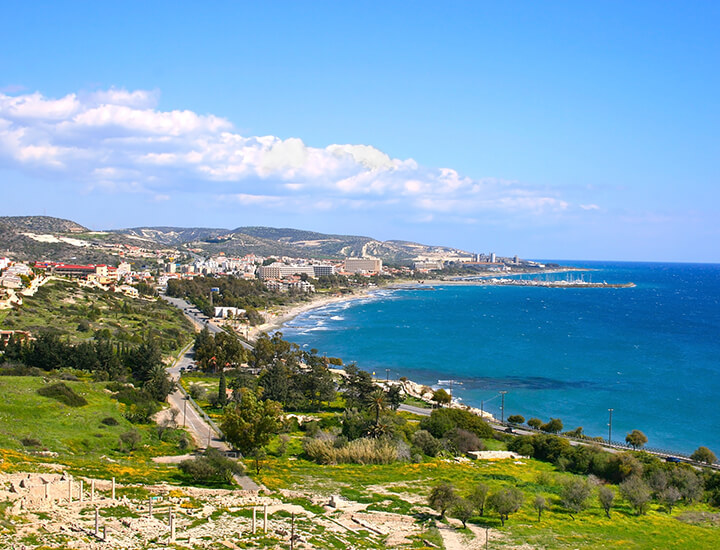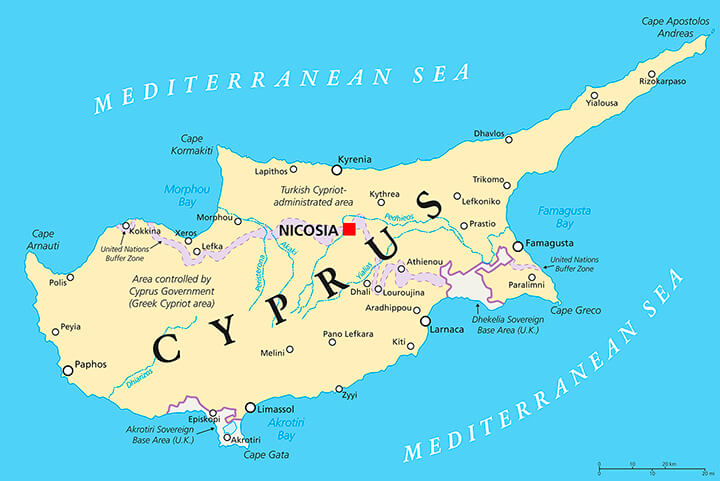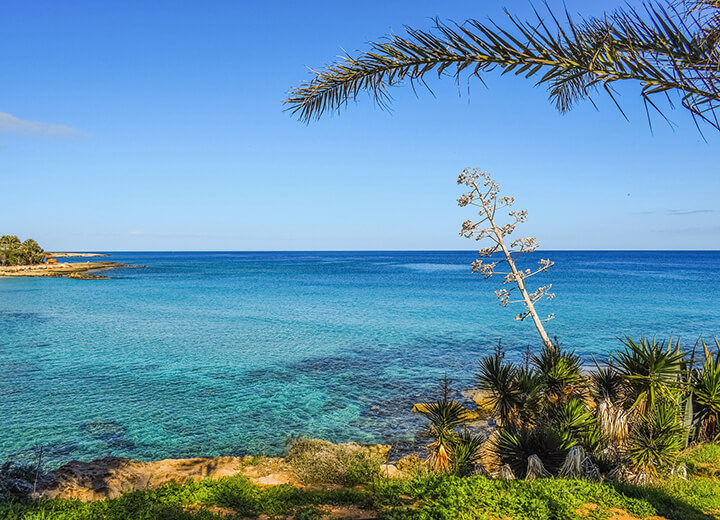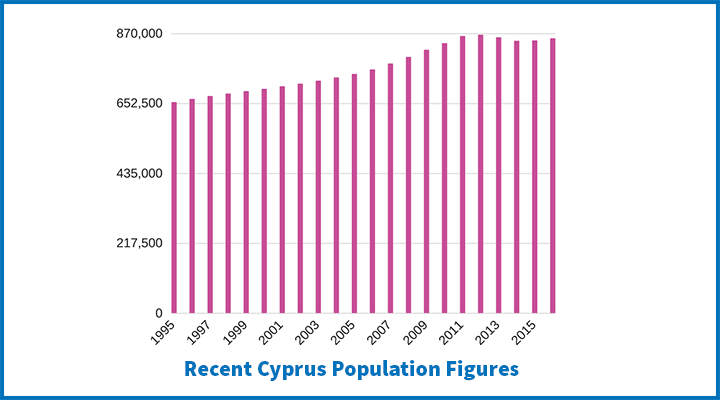Males: 73 years | Females: 76 years.
Cyprus Medical Doctors
Cyprus has a system of both public and private doctors. However, the vast majority of English speakers use private doctors. Public doctors can be found in all State hospitals, but there are usually very long waiting times, and prior appointments cannot be made.
With private doctors surgeries, or private doctors in clinics, polyclinics, and private hospitals, it is best to phone and make an appointment first. However, the appointments are dealt with more promptly, and there should be minimal waiting time.
All private doctors will charge for visits, while state-subsidized charges for public doctors are available to all who have a Cyprus medical card. Prescriptions are available at the hospital pharmacy with a current cost of 50c per item.
European Medical Cards (EHIC)
As of 1st May 2010, the UK started issuing new European Medical cards (EHIC) to expats, which covers full travel, accident & emergency and comprehensive medical expenses. However, this entitlement is only for those who have retired, and due to new hospital charges recently introduced (in 2015), even these ex-pat retirees are likely to have to pay for hospital treatment in Cyprus from now on.
The EHIC is not a substitute for medical and travel insurance, but it entitles you to state-provided medical treatment that may become necessary during your trip. Any treatment provided is on the same terms as Cypriot nationals.
The EHIC will not cover medical repatriation, ongoing medical treatment or non-urgent treatment. When current Cyprus medical cards expire, a written application will be required to the UK for a new medical card.
For anyone below retirement age, medical treatment in Cyprus will be commensurate with paying social insurance contributions (3 years minimum), as well as paying the going rates at the hospital. This expense highlights the need to get private medical insurance.
For information on requirements to get your European medical card please read Healthcare in Cyprus (in pdf format, may not be compatible with mobile devices). You can also get more information from the Ministry of Health website.
Doctors in Cyprus
Doctors in Cyprus are generally of a high standard and speak good English. Some people prefer to see a female doctor, and there are many good lady doctors available in all towns.
Some doctors cannot take blood tests but will refer you to their recommended laboratory where tests can be taken. This step will be at extra cost to your doctor’s appointment.
You may choose your own laboratory to go to if you do not wish to use the one recommended by your doctor. There are some excellent top class biological clinics (blood banks) that will take blood tests and have the results back often on the same day.
If you have a specific health problem, then you may be able to make an appointment directly with a private doctor who specializes in that field. Otherwise, you can go to any general doctor (GP) for a referral.
Waiting times to see a private specialist is minimal, and often you will be seen within days. Specialist doctors are highly qualified, and you can find doctors specializing in many areas such as;
- Cardiology
- Neurology
- Orthopedics
- Otolaryngology (ENT ear, nose, and throat)
- Gynaecology
- Oncology
- Podiatry
- Endocrinology
- Holistics
- Ophthalmology
- Dermatology & Venereology
- Gastroenterology
- Nephrology
- Nutrition & Dietetics
- Urology
- Radiology
- Anesthesiology
- Pediatrics
- Pathology
- Psychiatry
- Plastic & Cosmetic Surgery
Medical Coverage is Recommended
We cannot stress strongly enough the need for non-EU or people who do not qualify for free medical treatment in Cyprus to take a private medical insurance policy.
We have seen all too often people without medical provision taken seriously ill, or being the victim of an accident, and who must pay for all medical treatment which can amount to enormous costs. We also urge British ex-pats to take out adequate private medical insurance.
Hospitals and Pharmacies in Cyprus
We hope that you stay safe and in good health in Cyprus, however, should the need arise there are modern government hospitals in each of the major cities of Nicosia, Larnaca, Paphos, and Limassol. Each with an accident and emergency department where emergency care is provided to all.
For other hospital visits, you will need to obtain a medical card to enable you to get reduced cost treatment. Those without a medical card can still use the Government Medical Services, but will likely have to pay the full costs for any / all treatment obtained.
See more information here.
The Health Services provided include:
- (i) Out-patient care by general practitioners and specialists care to both outpatients and inpatients.
- (ii) The necessary drugs and pharmaceutical material.
- (iii) Diagnostic and paramedical examinations.
- (iv) Hospitalisation.
- (v) Dental care, except for dentures which are only provided to certain low-income groups.
- (vi) Medical rehabilitation and provision of prosthetic and orthopedic appliances.
- (vii) Domiciliary visiting, in exceptional cases (for saving a life or averting severe disability).
- (viii) Transport of the patient as his condition requires.
Hospital Visit Charges
All people who are entitled to state-subsidized health care will have to pay the new charges that were introduced on 1st August 2013. To see a general practitioner will cost €3, and to see a specialist doctor will cost €6.
Payment cannot be made in cash to see a hospital doctor. Instead, you must first purchase ‘health stamps’ which are available to buy at the hospital or post offices.
Anybody who has to visit the Accident and Emergency Department must pay €10 regardless of what treatment they receive.
*Please note that Cyprus is currently undergoing the implementation of an entirely new Public Health Service, and we will try to update this page with any relevant information as and when we receive it.The first part of the new Public Health Services was implemented in 2015.
Organ Donation
Organ donation is slowly becoming more accepted by Cypriots, who until recently have been reluctant to put their name on the list of organ donors. Kidney transplants are performed regularly, and the success rates in Cyprus are excellent. The European Union is looking at ways to implement a European Organ Donor Card, but up to now, nothing has been agreed. If you wish to be an organ donor in the event of your death, it is advisable to speak to your doctor or local hospital in Cyprus.
Cancer Services
There is a Cancer Prevention Program which implements a Mobile Cancer Diagnosis Unit that administers the Pap-Test and Mammography to women in Cyprus free of charge.
There is also the Europa Donna program for free breast cancer screening and help, albeit still in a limited capacity.
Donating Blood
Blood donors are also welcome at all the major city hospitals. Each hospital has a blood donors department where you can register for free and donate blood.
Private Hospitals and Clinics
Private hospitals, clinics, and polyclinics are quite numerous throughout Cyprus and offer an excellent standard of care, although this has to be paid for. It is recommended that you take out private medical insurance which will cover you for any hospital treatment in Cyprus, both government, and private hospitals.
Most private hospitals can provide the same operations and medical care as the public hospitals but have better waiting times and facilities.
Useful telephone numbers
- Emergency Call 112
- Famagusta General Hospital +357 23 200000
- Nicosia Makareio Hospital +357 22 405000
- Nicosia New General Hospital +357 22 603000
- Larnaca Old General Hospital +357 24 304312
- Larnaca Makareio Hospital +357 24 800500
- Limassol Old General Hospital +357 25 305333
- Limassol New General Hospital +357 25 801100
- Paphos General Hospital +357 26 800500
- Hospital Information 1400
- Drugs/Narcotics/Helpline 1410
- Doctors On Call 90901432
Pharmacies
Pharmacies (or chemists as some of us may refer to them) are numerous in Cyprus. The standard opening hours are much the same as general shops. Usually, around 9 am to 6 pm, and most will close for lunch.
Each city will have a late duty roster which will have three nominated pharmacies open for dispensing of emergency prescriptions. The duty pharmacies will stay open late each night until 10 pm in the winter months, and 11 pm in the summer months, and all day Sunday.
Details of the nominated duty pharmacies can be found in the local Greek or English papers, or you can call to any of the following numbers that have a recording giving details of the duty pharmacies for that day. At the time of writing, calls to these numbers cost 16 cents per minute.
24-hour Pharmacies Information Lines
- Ammochostos 90901413
- Larnaca 90901414
- Limassol 90901415
- Nicosia 90901412
- Paphos 90901416
Prescription Prices
The Government controls medication and prescription prices and all pharmacies should have the same rates. Please note that as of 10th January 2011 the Government imposed 5% VAT duty on all medicines.
Drug Names
You may find that your doctor has prescribed you a differently named prescription to what you were prescribed in the UK. This is normal as branded medications differ in Cyprus to the UK although the contents will be the same, so your Doctor may prescribe you with a local equivalent, which is often cheaper.
Always check with your doctor or pharmacist if you have any doubts about your prescription.
Quality of Cyprus Pharmacies
Pharmacists throughout Cyprus speak excellent English and are very helpful and friendly. Dispensing of prescriptions is much the same as the UK, where it will be distributed immediately, or during hectic times, within half an hour.
Dentists in Cyprus
Dental Services in Cyprus are provided by Government dentists and Private Dentists. Figures in 2009 show that there are 649 registered dentists with the Dental Council (36 in the Public Sector) 463 of them obtained their primary qualifications in an EU / EEA state. Both public and private dentists speak excellent English, as well as other languages.
The public dentists can be found within the major city hospitals, and are mostly used by Cypriot children. Their services are available to all who qualify for free medical care in Cyprus, although dentures are not available free.
Private dentists in Cyprus are numerous throughout all the cities and are made up of Cypriots and foreigners. The general standard of dentistry offered is good, and reasonably priced.
Private dentists offer every type of dental healthcare and treatment, from cleaning to fillings, extractions, root canals and crowns, to advanced cosmetic dental procedures such as dental implants. It is even possible to arrange cosmetic dentistry holidays where you can come to have dental treatment at private hospitals by qualified cosmetic dental surgeons.
Cosmetic Surgery in Cyprus
Cyprus has many excellent quality cosmetic plastic surgeons who offer many services in private clinics and private hospitals. Cosmetic surgery is popular with foreigners who either live here or come to Cyprus for cosmetic surgery holidays.
The service offered by plastic surgeons is much cheaper than in the UK, and of course, provides more privacy to patients.
Many medical co-ordinators can arrange your plastic surgery appointments. They offer a full service of arranging a consultation with the plastic surgeon in London, from making your surgery appointment at the private hospital in Cyprus, collecting you from the airport and taking you to the hospital, and returning you to your accommodation to recuperate.
Some of the plastic surgery procedures available are;
Breast Surgery / Breast Implants
Brow /Forehead Lift
Buttock Lift
Calf implants
Chin Surgery
Ear & Earlobe surgery
Eyelid Surgery
Face Lift
Lip & Wrinkle Fillers
Liposuction
Nose Surgery
Thigh Lift
Tummy Tuck
Upper Arm Lift
Botox Treatment (non-surgical procedure)
Chemical Peel (non-surgical procedure)
All private hospitals offering cosmetic surgery procedures are extremely clean and use state of the art equipment, so if you are thinking of having that ‘nose job’ done, or a ‘boob uplift’ now could be the time, Cyprus could be the place.
Reproductive Health
Many Cypriots, as well as foreigners, seek help with family planning. Some couples come to Cyprus solely for IVF treatment (In Vitro Fertilisation).
Reproductive Services
Cyprus has been providing a high level of IVF treatment for over 15 years by expert doctors implementing International protocols and using state of the art equipment.
Treatments available offer value for money in comparison to the UK and other EU countries, and include assisted reproduction technologies which cover;
In Vitro Fertilisation (IVF)
In Vitro Maturation
Intra Cytoplasmic Sperm Injection
Frozen Embryo Replacement
Egg Donation
Sperm Donation
Pre – Implantation Genetic Diagnosis & Screening (PGD)
The Ministry of Health has the primary responsibility & authority over clinics that offer IVF services, which must comply with all quality and safety requirements and standards. Services are also offered to postmenopausal women who may have been refused treatment in other countries.
Sexually Transmitted Diseases
There is, of course, the other side of sexual health in Cyprus that is relating to sexually transmitted diseases (STD’s) and HIV / AIDS. The prevalence of these in Cyprus is relatively low.
Family Planning
However, there are a large number of abortions known to be taking place in Cyprus, even though the practice is still illegal. It is presumably used as an alternative method of contraception, which might indicate inadequate levels of information to the public concerning family planning and safe sex.
HIV/AIDS in Cyprus
Cyprus put in place an HIV / AIDS Strategic Plan which was to cover the five year period from 2004 to 2008. The purpose of the plan was;
1. to make a situation analysis about HIV/AIDS
2. to describe the response to the epidemic so far and
3. to propose a strategic framework for future action
The HIV / AIDS Strategic Plan was extended to cover the years from 2010 to 2014.
According to the Euro HIV Index 2009 (EHIVI) which is the first of these reports, and released in October 2009, which is a survey of HIV policy and best practice amongst EU member countries, Cyprus was ranked 26th out of 29 which is an abysmal score. The report offers some points as to where Cyprus must improve access to care for people living with HIV and Aids.
The most recent report available from the Ministry of Health’s epidemiological study for the number of people with HIV in Cyprus between 1986 until 2011 was 735, of which 118 had died. The primary mode of transmission is sexual intercourse, with a 50/50 ratio between those reporting a heterosexual and those reporting a homosexual risk of infection.
We strongly urge you to practice safe sex; condoms are available to buy in many places such as kiosks, supermarkets, pharmacies, and from machines in pubs and nightclubs. If you think you may have caught an STD, please go and get tested immediately.
HIV / AIDS testing is offered free of charge in Cyprus at The Gregorios Clinic Foundation in Larnaca. Partner notification is not mandatory. For further information, you can call the AIDS Advisory Center – Tel: 22 305 155.




